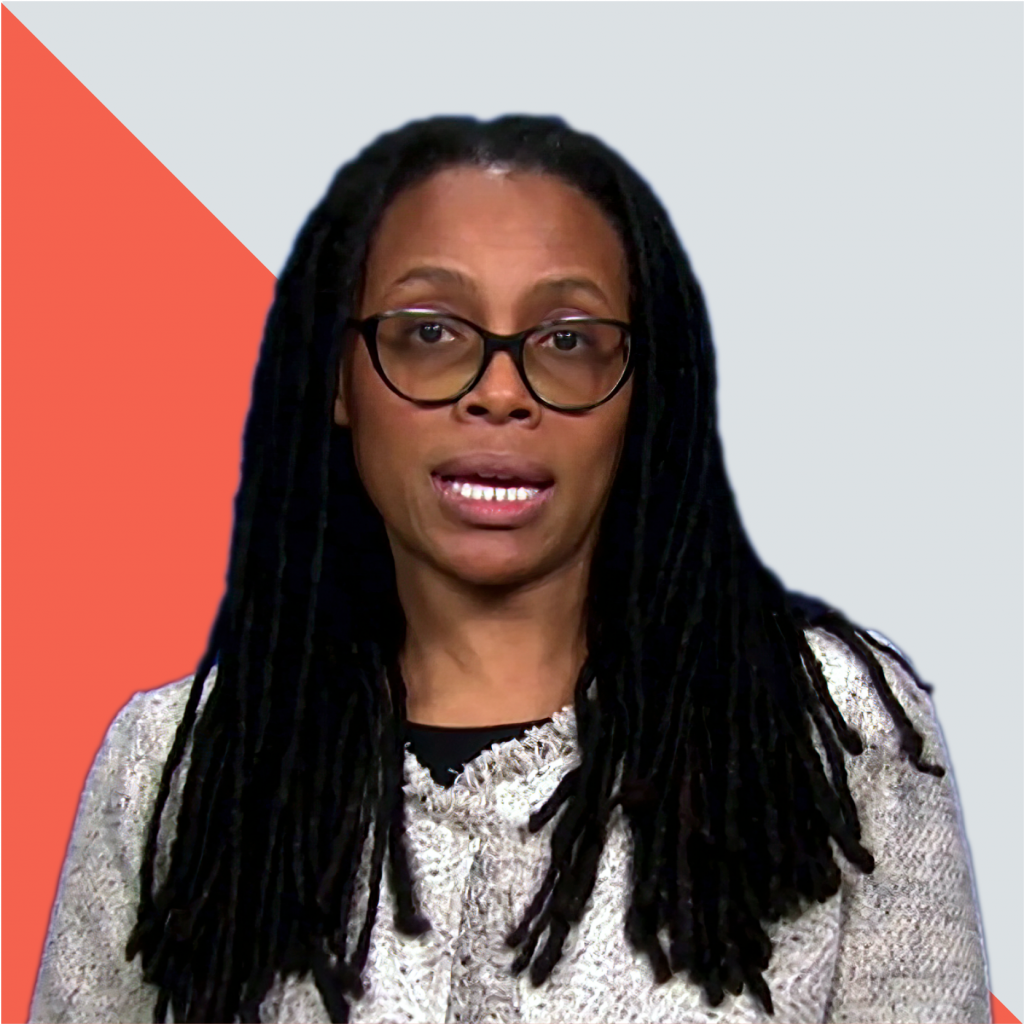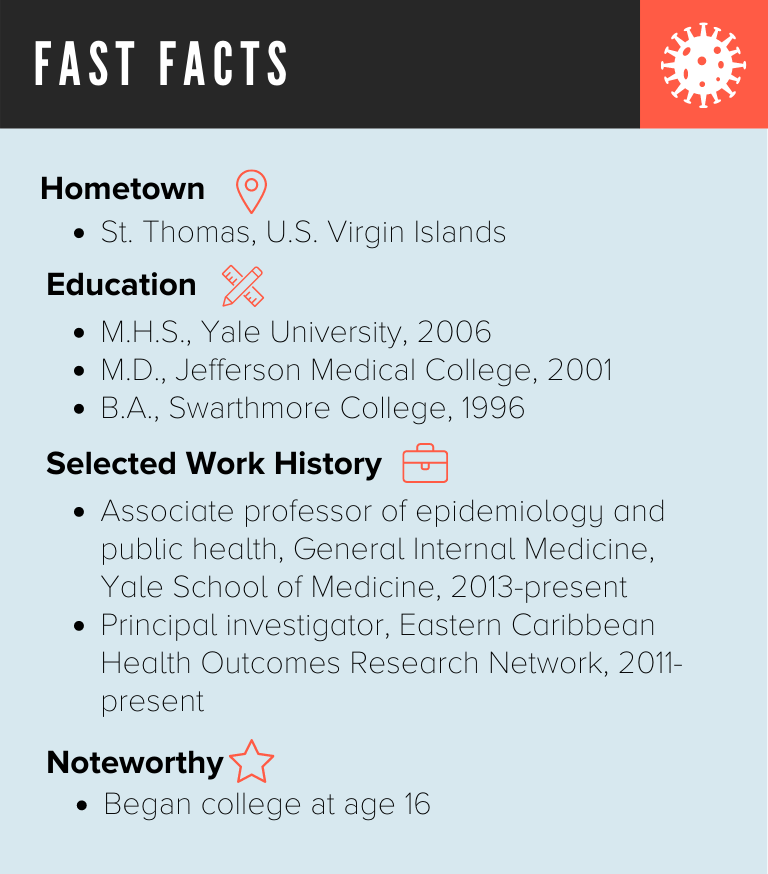Chair, COVID-19 Health Equity Task Force
Fast Facts

Disease Scholar

LEARN MORE
Vignette, a service through National Journal Research, is an essential tool for government affairs teams that need to understand the people behind the policies.
Click here to request a demo of the Vignette database, or email njvignette@nationaljournal.com to speak to someone about your access.
Growing up in the U.S. Virgin Islands, Marcella Nunez-Smith saw disparities in health care and access first-hand when her father was unable to get the care he needed. Before she was even an adult, she was on a path to doing something about it.
After entering college at 16 and graduating from medical school, Nunez-Smith went on to study at Yale University, where she now works as director of the Equity Research and Innovation Center and as a professor of epidemiology. Her research examines the social and structural determinants of health that lead to inequities, supports diverse workforce development, and encourages community engagement to reduce the spread of disease.
In 2011, Nunez-Smith established the Eastern Caribbean Health Outcomes Research Network, serving as a principal investigator working to collect data on behavioral and risk factors that influence chronic diseases in the region. In December, she was named to head the White House COVID-19 Health Equity Task Force. Speaking about herself and the other leaders of the Biden administration’s COVID response, she said they treat equity “not as a secondary concern, not as a box to check, but as a shared value, woven into all of the work that we do
Approach and Motivations
Excerpted from Marcella’s Vignette profile
Informed by her upbringing and experience coming from an underserved community, Nunez-Smith seeks to address disparities and discrimination in health care by leveraging her academic and professional posts
- Witnessed first-hand the effects of limited and racialized health care access after her father became paralyzed in his 40s due to treatable but undiagnosed high blood pressure; remembers health-insurance policies that failed to cover certain procedures because St. Thomas, where he lived, is in a territory rather than a state
- Emphasizes the importance of a diverse health care community to help combat racism and critiques the medical profession for not prioritizing this issue; says she finds hope and optimism in the recent “national reckoning” about racism
- Draws attention to the disproportionate impacts of COVID-19 on marginalized populations and health care’s historical legacy of discriminating against communities of color; leverages her roles in medicine, academia, and at the White House to elevate the issue of health equity and has played a key role in vaccine rollout among underserved communities
Not a Vignette subscriber? You can purchase a digital book with in-depth profiles on everyone featured in this special report.
To learn more about Vignette, or see the platform in action, request a demo here.

